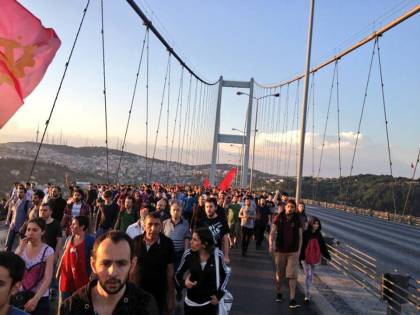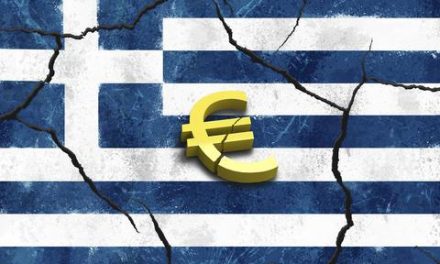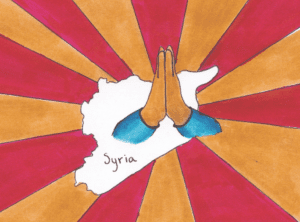The Wall Street Journal, By EMRE PEKER, JOE PARKINSON and AYLA ALBAYRAK
Clashes resumed Saturday morning between police and protesters at central Istanbul's Taksim Square, where demonstrations had begun four days earlier. The protests spread overnight to a dozen other Turkish cities, including Ankara, the capital, and Izmir, where some protesters threw stones and bottles at police in confrontations that ran through the night and continued Saturday, leaving streets littered with broken glass, rubbish and empty tear-gas shells. Turks outside the country, across Europe and in the U.S., were organizing solidarity protests.
Prime Minister Recep Tayyip Erdogan said in a televised speech Saturday that police had used excessive force, which will be investigated, but also called the protests "dishonest" and ideological, stirred by some "dark figures linked to terrorism.""The police were there yesterday, are there today and will be there tomorrow," he said, "because Taksim cannot be a square where extremists run wild."
The Friday demonstrations were Istanbul's fiercest antigovernment protests in years. The U.S. has expressed concern over Turkey's handling of the protests, and Amnesty International condemned the police's tactics. Eyewitnesses said tear gas was deployed randomly on people who were "by and large protesting peacefully."Resentment of a government that many secular-minded Turks see as increasingly authoritarian has been growing, fed by the likes of street fighting between unions and police on May Day, a restriction on alcohol sales that secularists say amounts to social engineering, the government's stance on neighboring Syria and grand Istanbul projects such as a new airport and a new Bosporus bridge that environmentalist say will uproot thousands of trees.
Friday's increasingly angry confrontation between police and demonstrators began at first light, when security forces moved to clear Taksim's Gezi Park, firing tear gas and removing tents and sleeping bags used by protesters. They sealed off the park, one of the few open green areas in central Istanbul, which had been occupied by demonstrators trying to prevent bulldozers' tearing down trees to make way for a redevelopment including a shopping mall and the restoration of an Ottoman-era barracks."I've been in the protests since yesterday afternoon; it has been a long couple of days for us," Emrah Kara, a 31-year-old musician and producer in Istanbul, said Friday. "Now we're protesting not because of some trees, but because we're sick of this oppression and this police brutality against people." He wore a mask to protect against tear gas.
Government critics were quick to draw comparisons to the protests in Cairo's Tahrir Square that toppled Egypt's longtime President Hosni Mubarak in 2011. Yet analysts cautioned that while there are similarities in how opposition to government policies has forged a broad coalition of different interest groups, the Turkish protests don't seeking to overthrow the system of government.
"The movement in Tahrir targeted removal of the regime, whereas the reaction in Turkey is against the government's ruling method," said Sinan Ulgen, a former Turkish diplomat now with the Carnegie Endowment for International Peace. "The similarity is the sense of self-empowerment. Until today, ruling as it wished didn't have any consequences for the government because it kept thinking it can override the opposition, but these protests might be a turning point."
Mr. Erdogan's ruling AKP, with its roots in Islamist politics, still retains strong public support. The prime minister won the latest of his three election victories in 2011 after delivering strong economic growth and political stability. Mr. Erdogan, who brooks little dissent, has dismayed the political opposition by declaring his ambition to run for president in elections next year, when his third term as prime minister ends and he runs into his party's three-term limit.
Striking a note of contrition Friday, Interior Minister Muammer Guler said officials would look into allegations that the police had used disproportionate force on the protesters. He still defended the authorities' intervention.
In a big, if temporary, victory for the demonstrators, an administrative court in Istanbul issued a ruling late Friday afternoon to halt the barracks reconstruction that had triggered the protests. A group seeking to prevent the razing of the park had sued to overturn a Culture Ministry decision to allow the reconstruction. The ministry decision, by a high council supported by Mr. Erdogan, itself overturned an earlier decision by a lower council at the ministry blocking the reconstruction.
Speaking in televised comments as protests ramped up, Istanbul Governor Huseyin Avni Mutlu denied that the city's projects were harming the environment and blamed provocateurs he didn't identify for using the Gezi Park dispute to agitate Istanbul citizens. Authorities detained at least 63 people in connection with the unrest, Mr. Mutlu said.
As recently as Wednesday, when the protests started gathering steam, Mr. Erdogan had said the government will press ahead with the project.
"They can do what they want. We've made our decision and we will do as we have decided," Mr. Erdogan said, as he cut the ribbon to start construction on the third Bosporus bridge, another controversial project ushered in by his ruling AKP.
But the premier's remarks didn't stop the protesters. Energized by the court decision, thousands of them gathered in Taksim's main pedestrian thoroughfare, Istiklal Caddesi (Freedom Avenue), to chant for the prime minister's resignation late into Friday evening.
"With this court decision, they cannot at the moment continue with this project to build a mall in our park. This is important, because the prime minister was saying, 'We decided, it will be done,' but the ruling shows that he has no legal basis for the things he is doing," said Osman Kavala, an activist and member of the Taksim Platform, which has been fighting to keep the park intact.
Read related stories



















